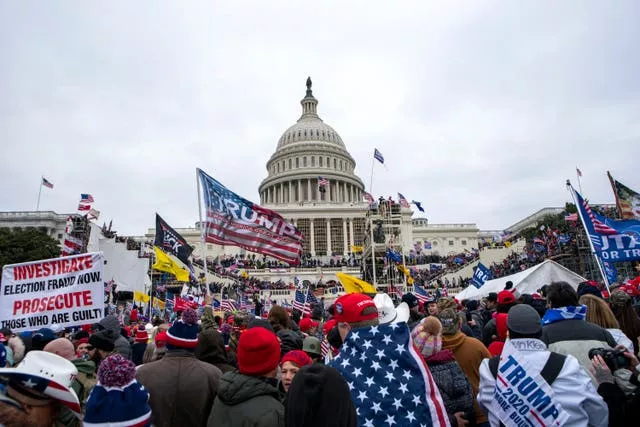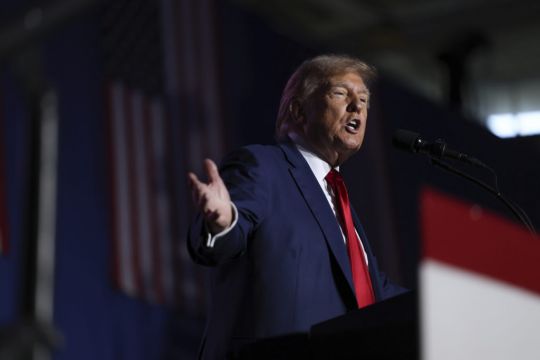Former US president Donald Trump on Wednesday asked the US Supreme Court to review a ruling barring him from the Colorado ballot, setting up a high-stakes showdown over whether a constitutional provision prohibiting those who “engaged in insurrection” will end his political career.
Mr Trump appealed against a 4-3 ruling in December by the Colorado Supreme Court that marked the first time in history that Section 3 of the 14th Amendment was used to bar a presidential contender from the ballot.
The court found that Mr Trump’s role in the January 6, 2021, attack on the US Capitol disqualified him under the clause.
The provision has been used so sparingly in American history that the US Supreme Court has never ruled on it.
Wednesday’s development came a day after Mr Trump’s legal team filed an appeal against a ruling by Maine’s Democratic secretary of state, Shenna Bellows, that Mr Trump was ineligible to appear on that state’s ballot over his role in the Capitol attack.
Both the Colorado Supreme Court and the Maine secretary of state’s rulings are on hold until the appeals play out.
Mr Trump’s critics have filed dozens of lawsuits seeking to disqualify him in multiple states.

He lost Colorado by 13 percentage points in 2020 and does not need to win the state to gain either the Republican presidential nomination or the presidency.
But the Colorado ruling has the potential to prompt courts or secretaries of state to remove him from the ballot in other, must-win states.
None had succeeded until a slim majority of Colorado’s seven justices, all appointed by Democratic governors, ruled last month against Mr Trump.
Critics said it was an overreach and that the court could not simply declare that the January 6 attack was an “insurrection” without a judicial process.
Mr Trump’s new appeal to the US Supreme Court also follows one from Colorado’s Republican Party.
Legal observers expect the high court will take the case because it concerns unsettled constitutional issues that go to the heart of the way the country is governed.
The Colorado high court upheld a finding by a district court judge that January 6 was an “insurrection” incited by Mr Trump.
It agreed with the petitioners, six Republican and unaffiliated Colorado voters whose lawsuit was funded by a Washington-based liberal group, that Mr Trump clearly violated the provision.
Because of that, the court ruled he is disqualified just as plainly as if he failed to meet the Constitution’s minimum age requirement for the presidency of 35 years.
In doing so, the state high court reversed a ruling by the lower court judge that said it was not clear that Section 3 was meant to apply to the president. It is one of many issues the nation’s highest court would consider.
Additional ones include whether states such as Colorado can determine who is covered by Section 3, whether congressional action is needed to create a process to bar people from office, whether January 6 met the legal definition of insurrection and whether Mr Trump was simply engaging in First Amendment activity that day or is responsible for the violent attack, which was intended to halt certification of Democrat Joe Biden’s victory.
Mr Trump held a rally before the Capitol attack, telling his supporters that “if you don’t fight like hell, you’re not going to have a country any more”.
Six of the US Supreme Court’s nine justices were appointed by Republicans, and three by Mr Trump himself.
The provision has barely been used since the years after the Civil War, when it kept defeated Confederates from returning to their former government positions.
The two-sentence clause says that anyone who swore an oath to “support” the Constitution and then engaged in insurrection cannot hold office unless a two-thirds vote of Congress allows it.







